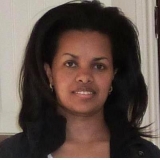Abstract: Two important risks faced by many smallholder farmers in Sub-Saharan Africa are erratic weather patterns and insecure land tenure. It is likely these risks will increasingly interact as projections of more erratic weather make small-scale farming more difficult and demand for rural land grows. This paper asks how farmers in Western Tanzania view these compound risks and the influence this has on levels of investment in adaptive agricultural technologies and the demand for land certification in a lab-in-the-field setting. Presenting novel data from a series of framed decision tasks linked to a household survey, this paper explores the relationship between individual risk preferences, adaptive investment and the demand for land certification from a group of 645 rural households in Kigoma, Tanzania. While adaptive investment increases with weather related risk, we find it responds negatively to land tenure risk. Individual risk preferences and past experiences of land disputes play significant roles in adaptive investment. Demand for land certification is high, investment increases significantly after certification, especially for risk-averse individuals.
Adaptive investment with land tenure and weather risk: Behavioral evidence from Tanzania
Country
Sustainable Development Goals
Publication reference
Visser, M., le Roux, L., Mulwa, C. K., Tibesigwa, B., & Bezabih, M. (2024). Adaptive investment with land tenure and weather risk: Behavioral evidence from Tanzania. Journal of Economic Behavior & Organization, 217, 398–434. https://doi.org/10.1016/j.jebo.2023.10.040




